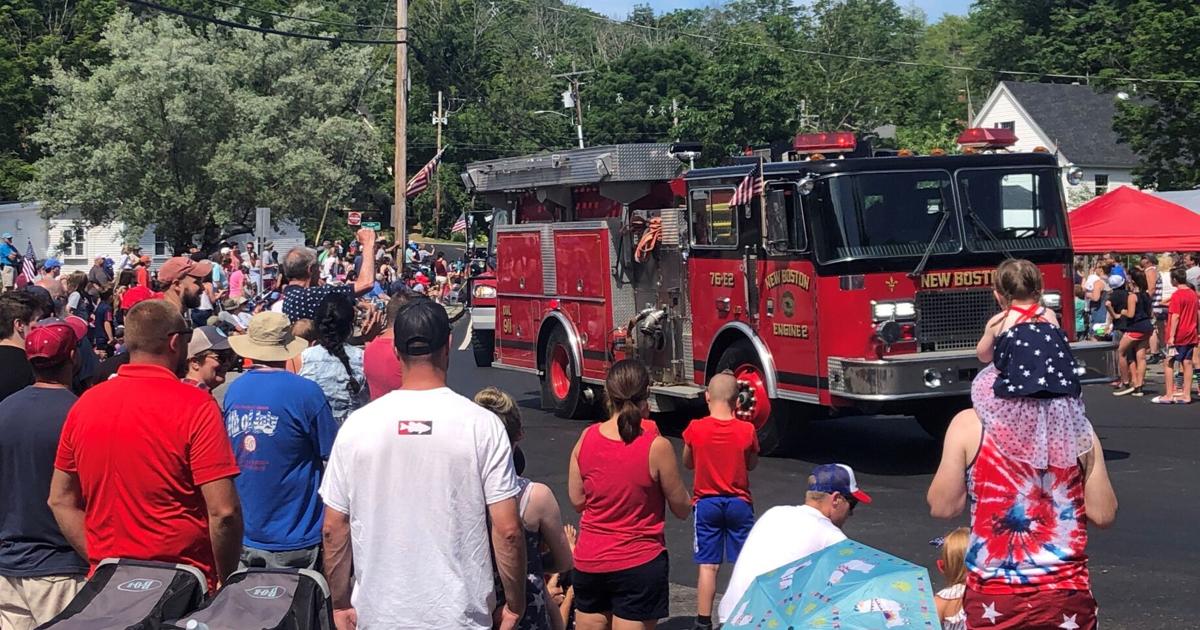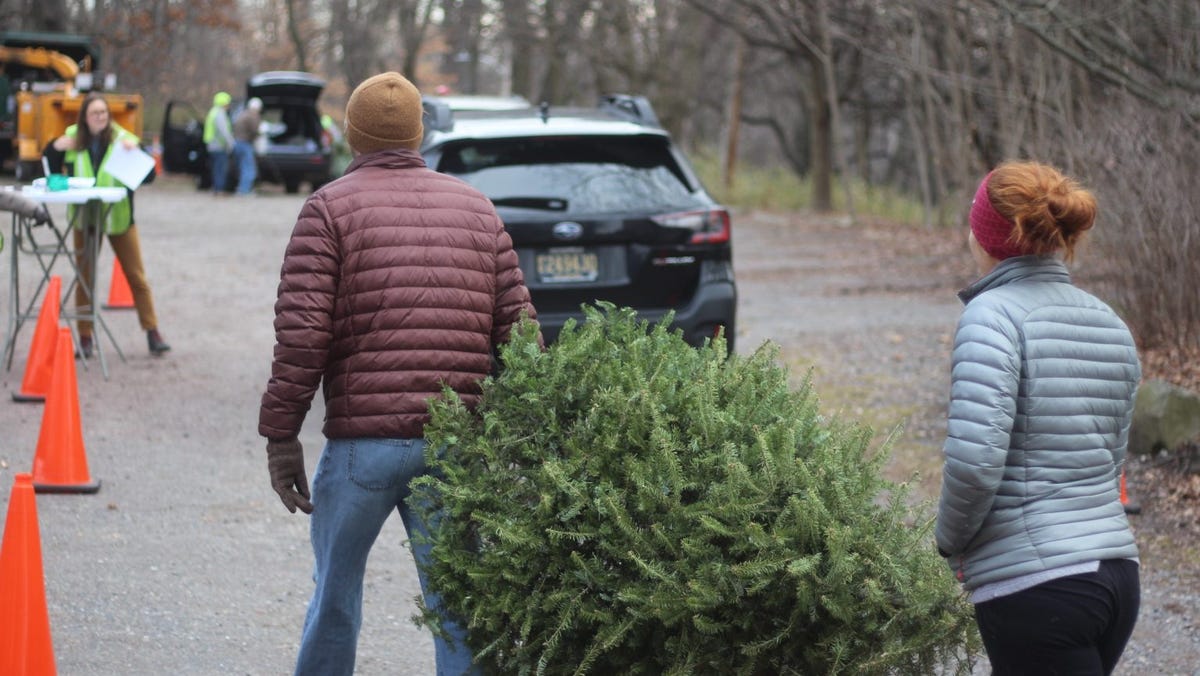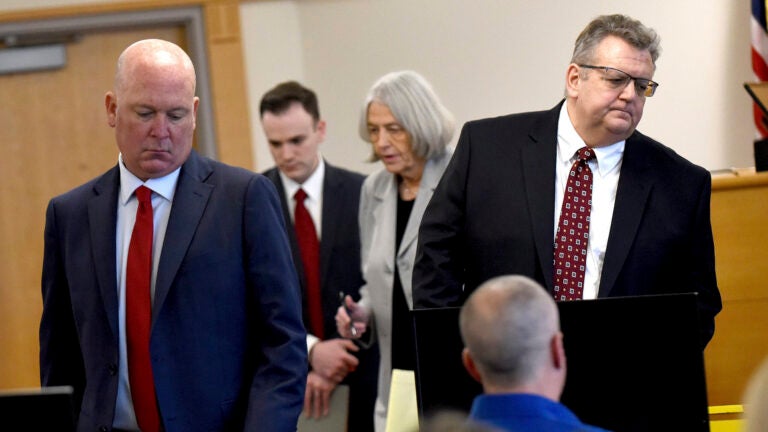If you‘re looking for fireworks and family fun on (or around) the Fourth, check out a selection of some of the events happening across New Hampshire.
Friday, June 30 Rindge: Independence Day Family Fun Festival
The Rindge Recreation Department and the Rindge Chamber of Commerce are bringing back the Family Fun Festival to the Rindge Town Common at 5 p.m.
There will be burgers, hot dogs and refreshments, along with lawn games and prizes for the kids.
Fireworks are at 9:15 p.m.
Expect food, games and music starting at 7 p.m. at Parsons Field.
Fireworks will go off at 9 p.m.
Saturday, July 1Sunapee: Warming up for the Fourth
The parade starts at Old Georges Mill Road at noon. Music plays at the bandstand from 5 to 7 p.m., and the day concludes with fireworks over Sunapee Harbor at 9 p.m.
Waterville Valley: Family Carnival
Head to Packard’s Field for inflatables, music, relay races, dunk tank, tie dye, mini-golf and more. And stop by Tartaglia’s food truck. This event is held rain or shine. Cost is $20 per child for a wristband.
Saturday and Sunday, July 1-2Gunstock: Holiday weekend craft fair
Celebrate America with American-made arts and crafts from 10 a.m. to 5 p.m. at Gunstock Mountain Resort, where more than 100 exhibitors will be on site. It’s held outdoors under canopies rain or shine, and friendly, leashed pets are welcome.
There will be food, crafts, demos and music. It’s free admission and parking.
The event also takes place Sunday, July 2.
Sunday, July 2Jackson: Fireworks and fun
Jackson lights up its sky in celebration of Independence Day. Fireworks go off from the Jackson Village Park area, making the grand display visible from almost any place in Jackson and some of the surrounding villages.
There will be ice cream, popcorn, glow necklaces, balloons and other fun stuff available from local and visiting vendors. Arrive early for a good spot.
Laconia: Independence Day celebration
The parade starts at 4:30 p.m. at Laconia High School, before heading to Church Street and ending at Opechee Park.
Music and festivities follow the parade. Fireworks are at 10 p.m.
Monday, July 3Manchester: Independence Day Celebration
Manchester’s 2023 Independence Day Celebration is at Arms Park.
The 39th Army Band is back on the stage this year. Fireworks begin at dusk.
Admission is free. Bring your own chairs and picnic dinners. There will be food vendors on site starting at 6 p.m. No alcoholic beverages or glass bottles are allowed. No pets, please. Portable toilets will be on site.
Rain date is Wednesday, July 5.
Monday and Tuesday, July 3-4Amherst: “Americana” Fourth of July celebration
It actually takes two days to celebrate the Fourth of July in Amherst. Activities start at 5:30 p.m. Monday, July 3, at Souhegan High School and include face painting, magic, children’s games, hot air balloon rides, music and food.
Fireworks light the sky at dusk.
Festivities continue on the Fourth of July with a parade at 10 a.m. that features the children’s bicycle parade. The fun continues through the early afternoon, with children’s activities, food and demonstrations.
Greenville: 3rd of July Pots & Pans Parade
Residents, businesses and civic organizations are invited to participate in the annual Pots and Pans Parade at midnight Monday, July 3, and running into the Fourth of July.
Remember, this is a midnight parade, so if it glows, it shows. The brighter the better. Trophies and prizes will be awarded. The theme is “Light Up Greenville.”
Fireworks go off at approximately 11:20 p.m.
Tuesday, July 4Claremont: 4th of July Celebration
Head to Monadnock Park at 6 p.m. for food and entertainment.
Jester Jigs performance is at 6:30 p.m. Fireworks blast off at 9:30 p.m.
Concord: July 4 Celebration
Festivities that include music by the Nevers Band and food service start at 6 p.m. at Memorial Field.
Contoocook: July 4th Family Fun Day
Hopkinton’s Parks and Recreation Department has planned a cookie contest, kids’ parade at 11:30 a.m. and an Independence Day Parade at noon through Contoocook Village. At 12:30 p.m. at the gazebo enjoy face painting, strawberry shortcake, live music, games and activities.
Gilmanton: March through town
The parade kicks off at town hall at 10 a.m.
Merrimack: Fourth of July parade and fireworks
Organized by the Merrimack Parks & Recreation Department, this is one of the larger Independence Day parades in New Hampshire.
There will be militia units, clowns, local businesses, community organizations and more. The 1.5-mile parade route begins at Commons Shopping Plaza, 515 Daniel Webster Highway, and concludes at Merrimack High School, where fireworks will go up at 9:15 p.m.
Nashua: Baseball, music and fireworks
Check out a Silver Knights Game, then stay for the day.
The game at Holman Stadium starts at 11 a.m. Kids 12 and under get in free and will enjoy an expanded Kids Zone and on-field activities.
The game is followed by a free concert with The Slakas at 5:30 p.m. and fireworks at dusk.
New Boston: 92nd 4th of July celebration
Festivities start with the tolling of church bells, followed by the parade at 10 a.m. and winding through town. Look for a lineup that features bands, antique cars, floats and hand-pumped fire engines.
Parade theme this year is “Cartoons & Comics.”
Head to the Hillsborough County Youth Center Foundation grounds at 4 p.m. for entertainment, kids games and activities, music, food and the chicken barbecue. Fireworks at 9:15 p.m.
Peterborough: 97th annual Independence Day ceremony
The Monadnock Center for History and Culture invites the community to its 96th annual Independence Day ceremony at 10 a.m. This tradition, going back to 1926, includes a flag raising and reading of the Declaration of Independence. This year’s speaker is New Hampshire State Representative Jonah Wheeler.
The ceremony is held outdoors on the front lawn of the center at 19 Grove St.
Look for a fun run at 8 a.m., parade at 10:30 a.m. (kicking off from the police station) and games, food and activities at various locations in Tamworth Village starting at noon.
Waterville Valley: Independence Day Parade
Join the Waterville Valley Independence Day Parade in Town Square at 11 a.m. on your bike, scooter or feet, walk the parade or watch from anywhere along the parade route.
Waterville Valley businesses and community members create and decorate floats in a friendly competition for the highly coveted Spirit Cup. Fireworks are at 9:30 p.m.
Wolfeboro: Parade and fireworks
Sponsored by American Legion Post #18, the Fourth of July parade on Main Street kicks off at 10 a.m. with fireworks presented by the Wolfeboro Department of Parks and Recreation over Wolfeboro Bay at dusk.
Friday, July 7 Littleton: Independence Day celebration
Littleton Parks & Rec’s Independence Day Celebration takes place from 2 to 9:30 p.m. at Remich Park.
More fireworks shows:Alton Bay: Monday, July 3, at 9:20 p.m.
Dover: Tuesday, July 4, at dusk, launched from Maglaras Park and Garrison Hill.
Gilmanton: Fireworks at Crystal Lake, Saturday, July 1, at dusk.
Hampton Beach: Tuesday, July 4, at dusk.
Portsmouth: Monday, July 3, at South Mill Pond at 9:15 p.m.
Rochester: Saturday, July 8, at dusk.
Tamworth: Saturday, July 1, at 9:30 p.m. at KA Brett School.
Weare: Saturday, July 8, at 9:15 p.m.
































